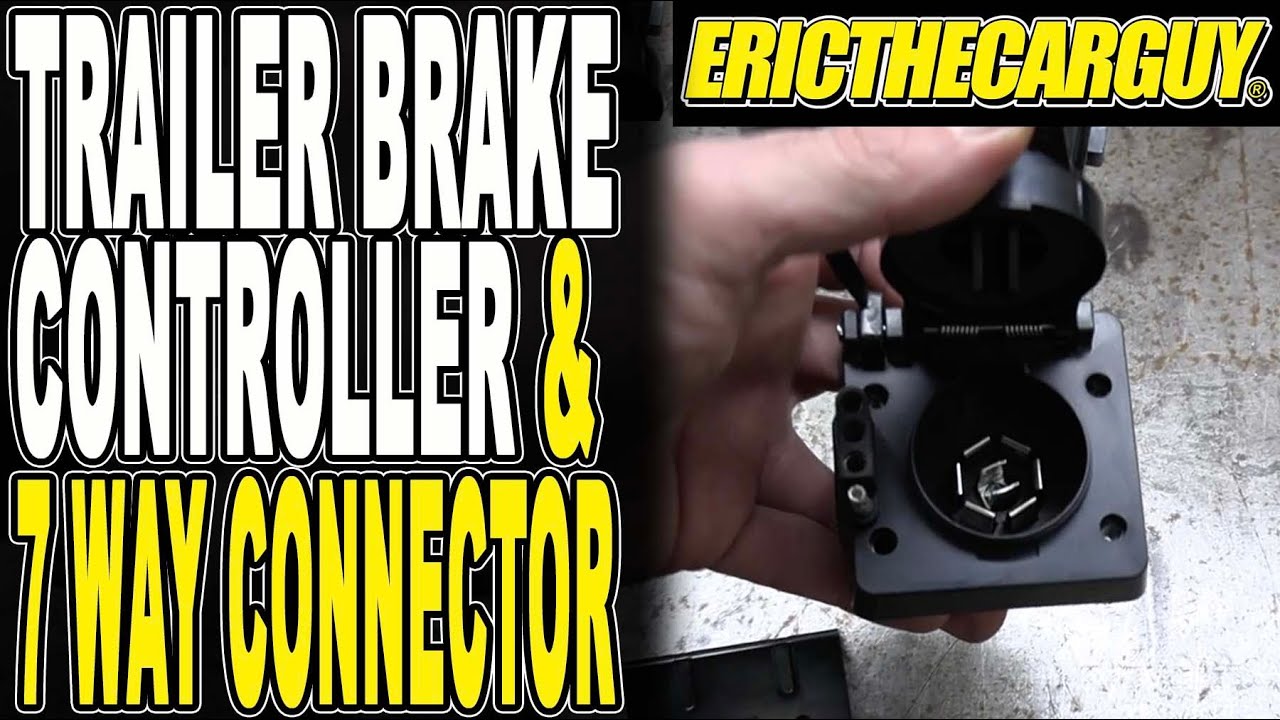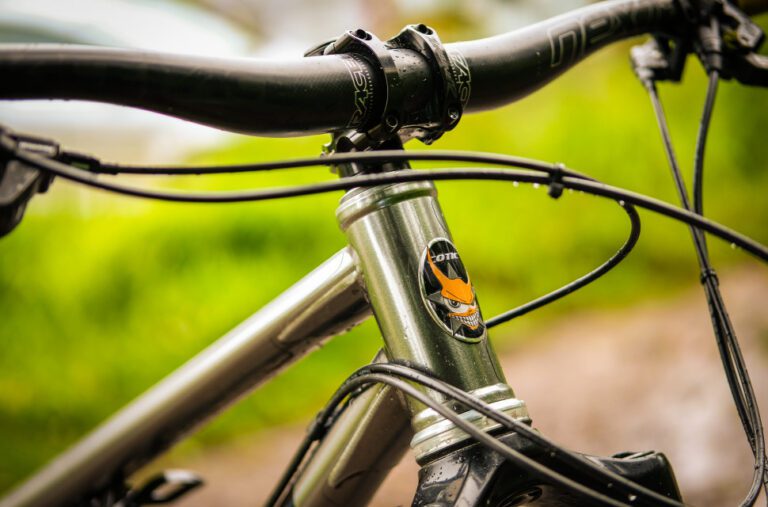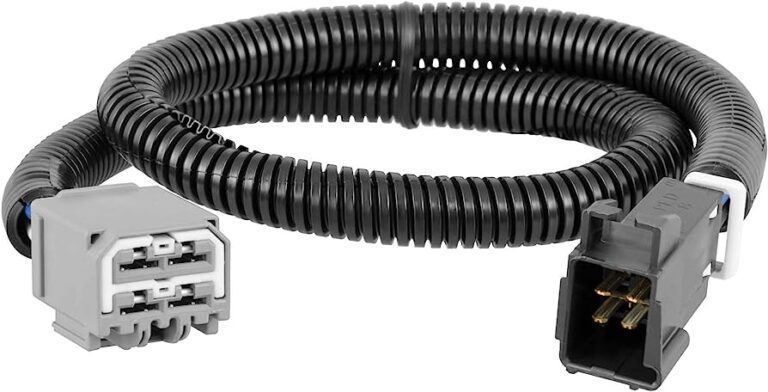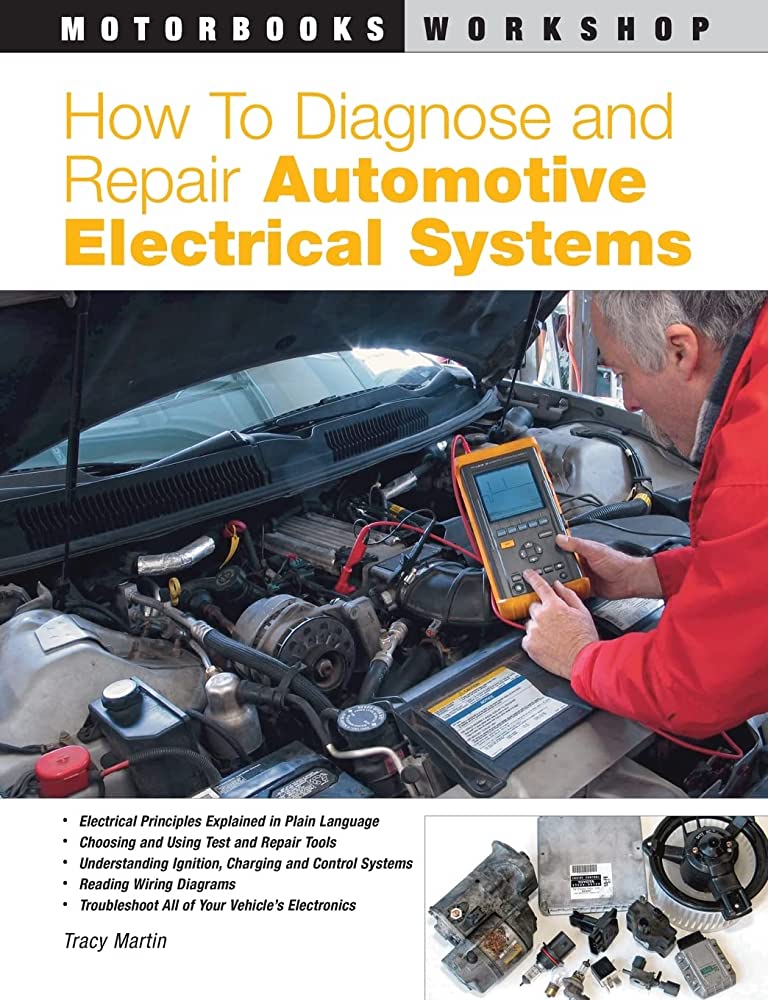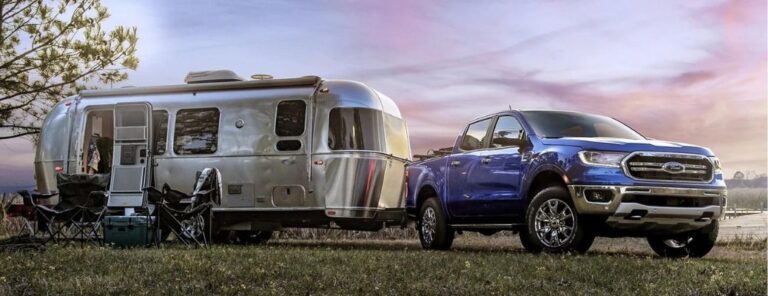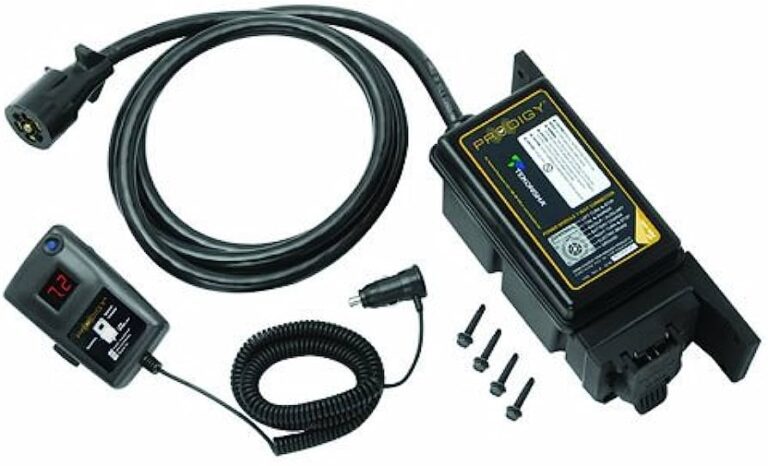7 Pin Connector: Does Your Vehicle Need a Brake Controller?
Yes, you need a brake controller with a 7 pin connector. A brake controller is required to control the electric brakes of a trailer that has a 7 pin connector.
Without a brake controller, the trailer’s brakes will not function correctly, and this can lead to serious accidents on the road. A brake controller is an essential component of any towing system, allowing for smooth and safe stopping when your vehicle and trailer are traveling together.
Investing in a reliable brake controller could save you costly repairs in the future and, more importantly, prevent accidents that endanger you and your fellow drivers. In this article, we will discuss what a brake controller is, how it works, and why it is essential for towing.

Credit: www.amazon.com
Understanding The 7 Pin Connector
When it comes to towing vehicles, one crucial component that you cannot overlook is the 7 pin connector. It serves as a critical link between the towing vehicle and the trailer. If you ever plan to tow anything, understanding what the 7 pin connector is and its functions is essential.
Definition And Functions Of A 7 Pin Connector
A 7 pin connector, also known as a 7 way plug, is a standardized wiring system that allows you to connect your towing vehicle to the trailer’s electrical system. The 7-pin connector typically connects the following electrical circuits:
- Left and right turn signals
- Brake lights
- Tail lights
- Back-up lights
- Electric trailer brakes
- 12v power supply
- Ground wire
Different Types Of 7 Pin Connectors
Various types of 7 pin connectors offer different wiring setups.
- Standard 7 pin connectors – these are the most common types you’ll find on most recreational vehicles and towing equipment.
- 4 pin to 7 pin adapters – for those with towing vehicles that have a 4 pin connector, an adapter ensures the connection between the trailer’s 7 pin connector.
- Heavy-duty 7 pin connectors – for commercial and industrial uses, heavy-duty 7 pin connectors are designed to endure harsh conditions associated with heavy-duty applications.
Why Trailer Owners Prefer The 7 Pin Connector
Trailer owners mostly prefer the 7 pin connector because of its versatility. The standardized wiring system provides convenience by eliminating the need for custom wiring. It also ensures a secure and safe connection between the towing vehicle and the trailer.
Importance Of Safety Measures When Towing
When towing, safety should come first. To ensure a safe journey, you must consider the following measures:
- Check your towing vehicle’s towing capacity and ensure that it is capable of handling your trailer’s weight.
- Ensure that the towing vehicle’s brake system is in good condition.
- Properly connect the trailer to the towing vehicle using the 7 pin connector.
- Always keep a safe distance from other vehicles, especially when braking.
To wrap it up, understanding the 7 pin connector and its functions is crucial when it comes to towing your trailer. Ensuring that you incorporate safety measures guarantees a safe journey.
Do You Need A Brake Controller?
Understanding The Need For A Brake Controller
If you’re towing a trailer that has brakes, you’ll need a brake controller to apply the trailer brakes at the same time as your vehicle brakes. A brake controller ensures that your trailer’s braking is synchronized with your tow vehicle, guaranteeing effective and smooth braking.
When Is It Necessary To Use A Brake Controller?
It is mandatory to use a brake controller when towing a trailer that weights more than 1,500 pounds with electric brakes. It’s also worth remembering that using a brake controller should be above and beyond any legal requirements. A brake controller ensures your safety and the security of other road users by ensuring that you can come to a halt quickly and safely.
The Legal Requirements For Using A Brake Controller
If you are towing a trailer over 1,500 pounds with electric brakes, the law obliges you to have a brake controller. Additionally, you must comply with the legal requirements for brake controllers set out by your country or state. Checking these is essential for safety and to avoid any legal infraction.
Benefits Of Using A Brake Controller In Your Vehicle
Having a brake controller in your vehicle has numerous benefits, including:
- Responsive braking: A brake controller helps you to achieve responsive braking for your trailer by synchronizing your vehicle’s braking system with the trailer’s.
- Safety: A brake controller’s key benefit is safety. The synchronized braking system avoids any jerking or fishtailing.
- Lower maintenance cost: Effective trailer braking reduces maintenance costs by reducing the wear and tear on your vehicle’s brakes and other mechanical parts.
- Easier to use: Thanks to its user-friendly design, brake controllers are simple to use, connect and control.
- Control: With a brake controller, you have more control over the braking system of your trailer, meaning less risk of accidents or damage.
Remember that adding a brake controller is an affordable way to boost the braking power of your tow rig. And, because a brake controller enhances safety, it’s never wise to compromise on purchasing one.
Choosing The Right Brake Controller
If you’re towing a trailer, you’ll need a brake controller to keep your trailer in line and stop it safely. There are several factors to consider when choosing a brake controller.
Types Of Brake Controllers Available For Different Vehicles
There are three types of brake controllers to choose from:
- Time-delayed brake controllers: These controllers apply the brakes with a pre-set delay after you apply the brakes in the tow vehicle. These are suitable for small to medium trailers.
- Proportional brake controllers: These controllers apply the brakes in the trailer at the same time and with the same pressure as the tow vehicle’s brakes. These are suitable for medium to large trailers.
- Hydraulic brake controllers: These controllers are suitable for trailers with hydraulic brakes.
Factors To Consider When Selecting A Brake Controller
Consider the following factors when selecting a brake controller:
- Weight of the trailer
- Type of brakes on the trailer
- Type of vehicle you’re towing with
- Experience level of the driver
Installing And Configuring A Brake Controller
Installation and configuration of a brake controller may vary depending on the type of brake controller and vehicle you have. Follow the manufacturer’s instructions carefully. The general steps are:
- Mount the brake controller in the vehicle
- Connect the wiring to the brake controller and vehicle
- Adjust the gain setting on the brake controller
Comparison Of Different Brake Controller Options
Consider the following when comparing different brake controller options:
- Price
- Type of brake controller
- Features
- Ease of installation and configuration
Choose a brake controller that suits your specific needs and budget. Remember to always test and adjust the brake controller before towing your trailer for the first time. By choosing the right brake controller, you’ll have greater control and safety when towing your trailer.
Maintaining Your Brake Controller
Do you need a brake controller with a 7 pin connector?
When it comes to towing a trailer, whether it’s for work or leisure, the brake controller is an essential component that you shouldn’t overlook. A brake controller is responsible for providing an electromagnetic signal to the trailer’s brakes, so they can synchronize with the towing vehicle’s brakes.
But do you need a brake controller with a seven-pin connector? The answer is yes, and in this post, we will focus on how to maintain your brake controller to ensure it functions correctly each time you tow.
Importance Of Regular Maintenance For Your Brake Controller
Like any other component in your vehicle, the brake controller needs regular maintenance to ensure it works correctly and has an extended lifespan. Here are some of the reasons why regular maintenance is crucial:
- Prevents malfunctioning: A brake controller that’s not adequately maintained is more prone to malfunctioning, which can lead to accidents and damage to your vehicle and trailer.
- Saves money: Regular maintenance of your brake controller can save you money in the long run by preventing costly repairs or having to replace it entirely.
- Promotes safety: Regular maintenance ensures that your brake controller is functioning correctly and promotes safe towing.
Checking For Wear And Tear
When it comes to maintaining your brake controller, one of the things you should be concerned with is wear and tear. Here’s how to check for it:
- Inspect the exterior: Check for any physical damage or rust on the brake controller’s outer casing. A damaged casing can cause the wiring inside to malfunction, and rust can cause a short circuit.
- Check the wiring: Look for any exposed or damaged wiring on your brake controller. Damaged wiring can cause a short circuit, which can damage your vehicle or trailer’s electrical system.
- Test the brakes: Connect your trailer and perform a brake test to check if the controller is functioning correctly.
How To Troubleshoot Common Issues
Even with regular maintenance, your brake controller can still have issues sometimes. Here are some common problems and how to troubleshoot them:
- The trailer brakes aren’t responding: Check the brake controller settings, and make sure that it’s sending the right amount of voltage to the trailer brakes.
- The brakes are locking up: This is a sign that the brake controller is sending too much voltage to the trailer brakes. Adjust the controller setting accordingly.
- The brake light is on: Check the wiring to ensure that it’s correctly connected.
Tips For Extending The Lifespan Of Your Brake Controller
Here are some simple things you can do to prolong the lifespan of your brake controller:
- Cover it: When not in use, cover your brake controller to prevent dust and moisture from getting in.
- Avoid extreme temperatures: Extreme temperatures can damage your brake controller. So, don’t leave it in the car on a hot summer day or place it near a heater during the colder months.
- Follow the manufacturer’s instructions: Always refer to the manufacturer’s instructions for specific maintenance directives.
Regular maintenance of your brake controller ensures that it will function correctly and prolongs its lifespan. By following the tips provided here, you can safely tow your trailer without worrying about your brake controller malfunctioning.
Frequently Asked Questions Of Do You Need A Brake Controller With A 7 Pin Connector
Do You Need A Brake Controller With A 7 Pin Connector?
Yes, a brake controller is necessary with a 7-pin connector as it enables the trailer brakes to work in tandem with the vehicle’s brakes.
What Happens If You Don’T Have A Brake Controller?
Without a brake controller, the trailer won’t brake when you apply the vehicle’s brakes. This can cause the trailer to sway or push the towing vehicle into an accident.
Can You Install A Brake Controller Yourself?
Yes, you can install a brake controller yourself if you have some electrical knowledge and basic tools. However, it is recommended to seek professional installation.
What Type Of Brake Controller Should I Use With A 7 Pin Connector?
There are different types of brake controllers, but a proportional brake controller is recommended for a 7-pin connector as it sends a proportional amount of power to the trailer brakes.
Is It Legal To Tow Without A Brake Controller?
Many states have laws that require the use of a brake controller for trailers over a certain weight limit. It is important to check the legal requirements in your state.
Conclusion
A brake controller is an important component in ensuring the safe towing of a trailer. A 7 pin connector is a necessary requirement for many modern trailers and vehicles, and therefore, most brake controllers can be installed with a 7 pin connector.
When deciding if you need a brake controller, it is important to consider the weight of your trailer and the type of driving you will be doing. If you will be frequently towing heavy loads or going down steep grades, a brake controller is an essential investment.
While some older vehicles may not have a 7 pin connector, adaptors are widely available, making installation of a brake controller possible. Ultimately, the safety of your vehicle, trailer, and those on the road depends on proper equipment and responsible driving.
So, if you are unsure whether you need a brake controller with a 7 pin connector, consult with a trusted mechanic or towing expert to ensure that you are making the right decision.

